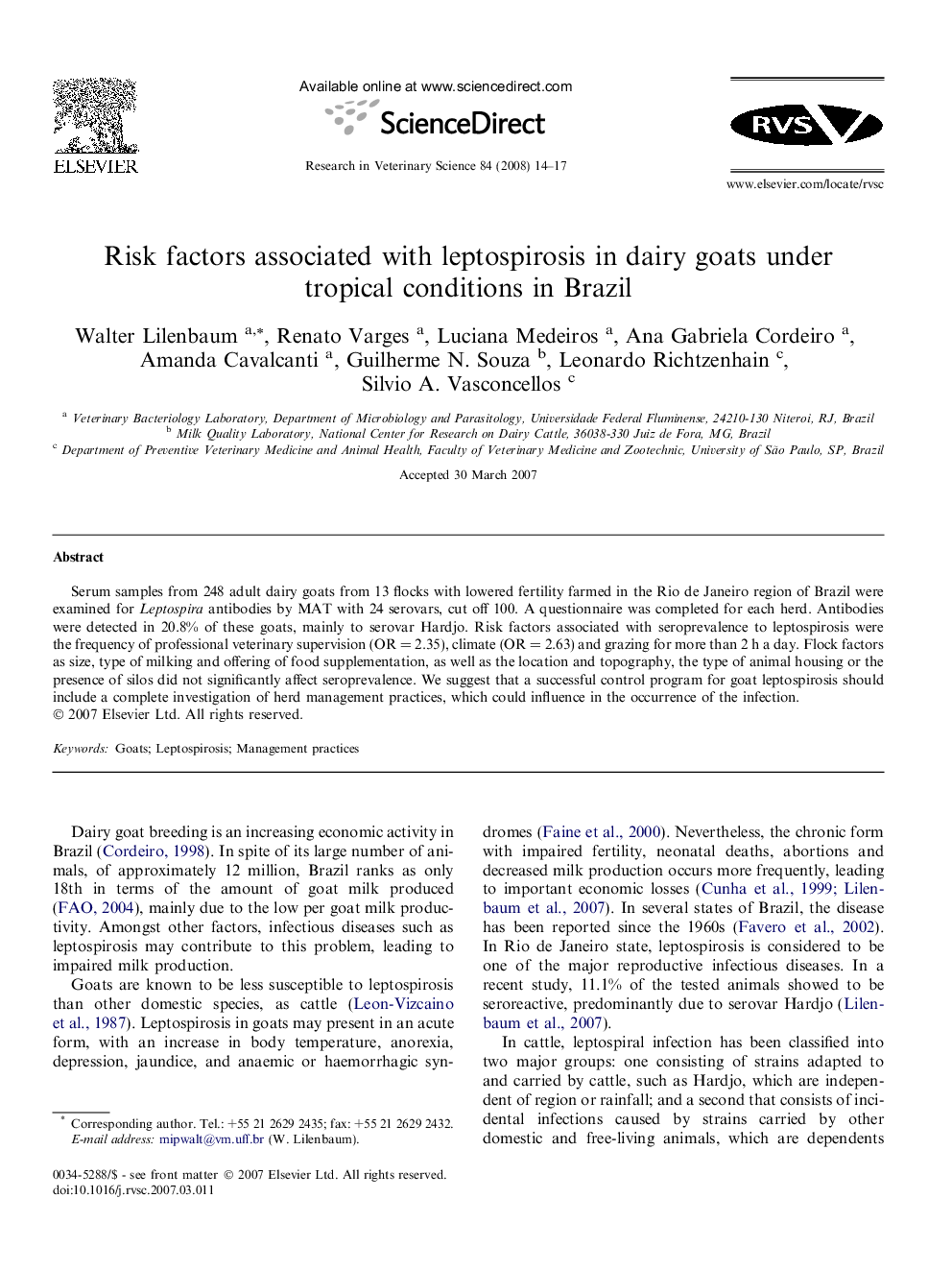| Article ID | Journal | Published Year | Pages | File Type |
|---|---|---|---|---|
| 2456446 | Research in Veterinary Science | 2008 | 4 Pages |
Serum samples from 248 adult dairy goats from 13 flocks with lowered fertility farmed in the Rio de Janeiro region of Brazil were examined for Leptospira antibodies by MAT with 24 serovars, cut off 100. A questionnaire was completed for each herd. Antibodies were detected in 20.8% of these goats, mainly to serovar Hardjo. Risk factors associated with seroprevalence to leptospirosis were the frequency of professional veterinary supervision (OR = 2.35), climate (OR = 2.63) and grazing for more than 2 h a day. Flock factors as size, type of milking and offering of food supplementation, as well as the location and topography, the type of animal housing or the presence of silos did not significantly affect seroprevalence. We suggest that a successful control program for goat leptospirosis should include a complete investigation of herd management practices, which could influence in the occurrence of the infection.
